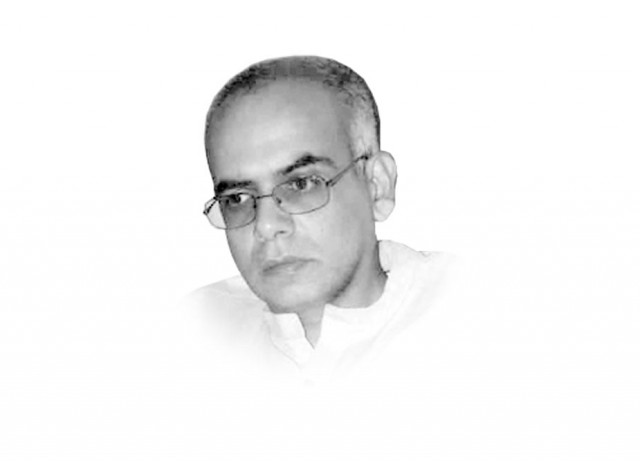Discrimination in flood relief
The more vulnerable and marginalised segments of society are often side-lined when sharing the incoming resources.

The effective delivery of aid pouring in amidst the chaos of a post-disaster situation can be hindered foremost by unscrupulous officials or politicians. There is ample evidence of such problems having occurred after the recent floods as well. Consider for instance, the numerous reported allegations of politicians diverting relief to their own constituencies. The recent police recovery of relief packages at the residence of a local administrative official in Bahawalpur is an example of even more blatant corruption.
Even when aid does reach affected areas, the local elite can often play a significant role in determining who gets what. Discrimination against entire communities is a chronic problem. Humanitarian workers have reported many examples of aid being denied to those from specific castes or clans, or to those belonging to different faiths.
In southern Punjab, leaders of the Ahmadi community have spoken up against their lack of access to both relief goods as well as a place in relief camps. It is unbelievable that the local administration could not preempt this sort of discrimination. The brutal massacre of Ahmadis earlier this year in Lahore should have alerted the local politicians and civil administration to pay particular attention to protecting the Ahmadi community displaced within Rajanpur, Muzaffargarh and DG Khan. While the Human Rights Commission of Pakistan has expressed shock over the treatment of Ahmadi flood victims, politicians and the senior bureaucracy in these areas don’t seem particularly bothered.
Similarly, Christians in Punjab have complained about discrimination. District officials in Sukkur have also observed Sikhs and Hindus being pushed away from food distribution points. And in Karachi the complete lack of religious sensitivity led nearly 600 Hindu flood victims to stage a protest after they were given beef to eat.
While most reputable organisations involved in the ongoing relief work are bound by their own charters to ensure equitable aid distribution, there is evidence of some charity groups being quite biased. In Muzaffargarh for instance, families of gypsies were turned away by camp organisers themselves, after being stereotyped as unclean and prone to theft.
These varied incidences of aid distortion, in the form of entire communities of flood victims being discriminated against, are a very serious problem. If these issues are not immediately and proactively addressed during the ongoing relief phase itself, they will carry over to the subsequent rehabilitation stage as well. Ultimately, such evident biases will undermine lofty government claims about the transparency of aid utilisation and further reduce the international community’s resolve to aid Pakistan in the future.
Published in The Express Tribune, September 17th, 2010.

















COMMENTS
Comments are moderated and generally will be posted if they are on-topic and not abusive.
For more information, please see our Comments FAQ